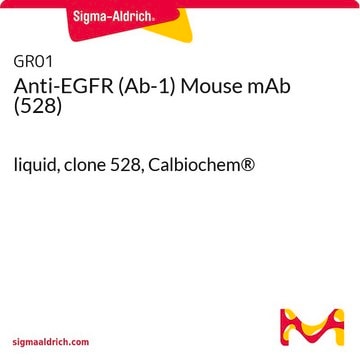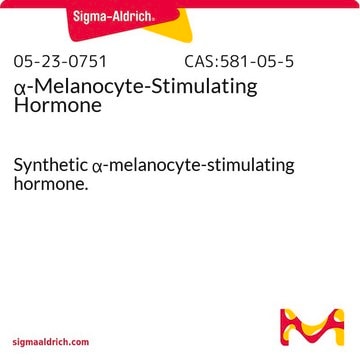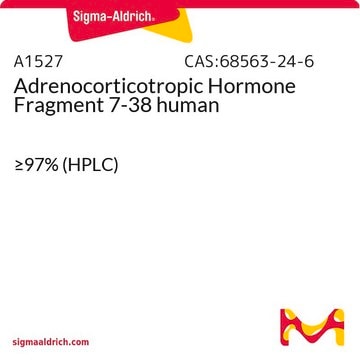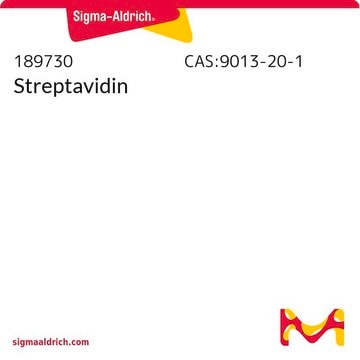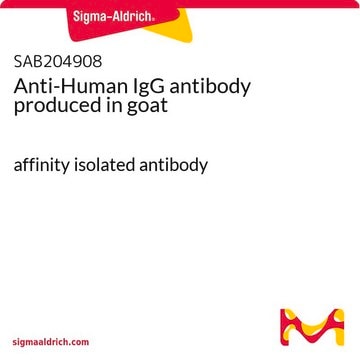GR01L
Anti-EGFR (Ab-1) Mouse mAb (528)
lyophilized, clone 528, Calbiochem®
Synonyme(s) :
Anti-Epidermal Growth Factor Receptor
About This Item
Produits recommandés
Source biologique
mouse
Niveau de qualité
Forme d'anticorps
purified antibody
Type de produit anticorps
primary antibodies
Clone
528, monoclonal
Forme
lyophilized
Ne contient pas
preservative
Espèces réactives
human
Ne doit pas réagir avec
rat, mouse
Fabricant/nom de marque
Calbiochem®
Conditions de stockage
OK to freeze
Isotype
IgG2a
Conditions d'expédition
ambient
Température de stockage
2-8°C
Modification post-traductionnelle de la cible
unmodified
Informations sur le gène
human ... EGFR(1956)
mouse ... Egfr(13649)
rat ... Egf(25313)
Description générale
Immunogène
Application
Frozen Sections (2.5 µg/ml)
Immunofluorescence (5 µg/ml)
Immunoprecipitation (1 µg/sample)
Neutralization Studies (see comments and application references)
Paraffin Sections (see application references)
Avertissement
Forme physique
Reconstitution
Remarque sur l'analyse
A-431 cells or skin tissue
Autres remarques
Masui, H., et al. 1984. Cancer Res.44, 1002.
Reynolds, F. H., Jr., et al. 1981. Nature 292, 259.
Ushiro, H. and Cohen, S. 1980. J. Biol. Chem.255, 8363.
Informations légales
Vous ne trouvez pas le bon produit ?
Essayez notre Outil de sélection de produits.
Code de la classe de stockage
11 - Combustible Solids
Classe de danger pour l'eau (WGK)
WGK 1
Certificats d'analyse (COA)
Recherchez un Certificats d'analyse (COA) en saisissant le numéro de lot du produit. Les numéros de lot figurent sur l'étiquette du produit après les mots "Lot" ou "Batch".
Déjà en possession de ce produit ?
Retrouvez la documentation relative aux produits que vous avez récemment achetés dans la Bibliothèque de documents.
Notre équipe de scientifiques dispose d'une expérience dans tous les secteurs de la recherche, notamment en sciences de la vie, science des matériaux, synthèse chimique, chromatographie, analyse et dans de nombreux autres domaines..
Contacter notre Service technique
